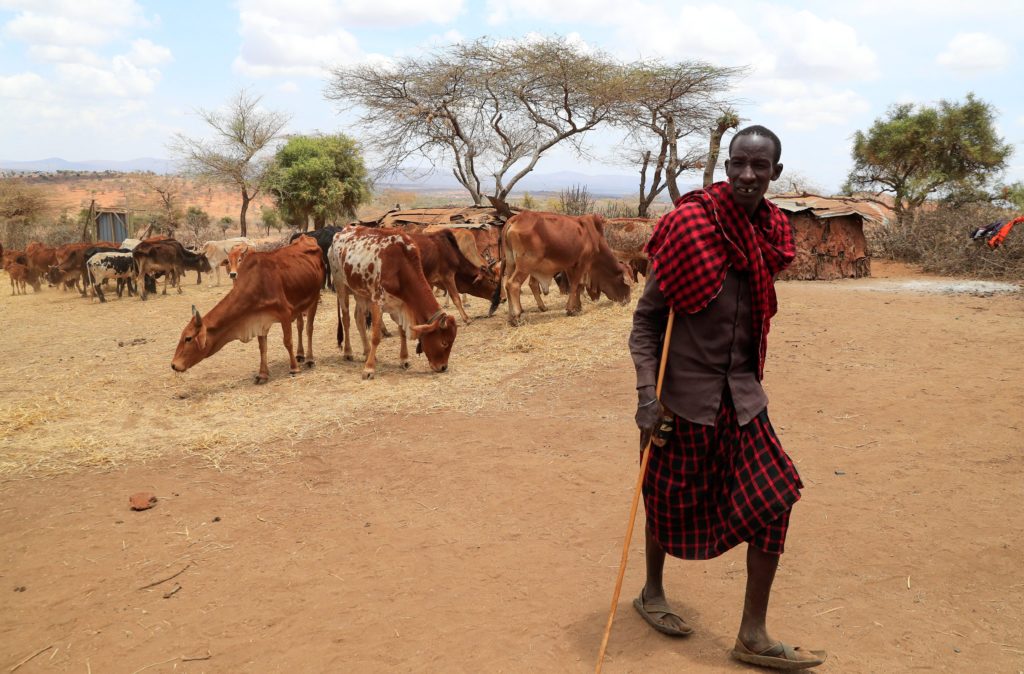As Kenya's drought reaches crisis proportions, Catholic bishops suggested enhanced post-harvest management and food banks to help guarantee food security.
"The current drought situation in the country, especially in the arid and semi-arid regions, has now reached a crisis level. The consequent famine is regrettable and unacceptable. This calls for urgent and decisive action from all actors," said Archbishop Anthony Muheria of Nyeri. He spoke while reading the bishops' final statement to the media Nov. 10, at the end of their general meeting in the coastal city of Mombasa.
The bishops also asked the government to finance school feeding programs in the drought-affected regions so that no child drops out of school.
Failed rains, climate change, a recent locust infestation, the war in Ukraine and inflation are being blamed for Kenya's food crisis. A drought -- the worst in 40 years, according to the U.N. -- is affecting 23 out of the country's 47 counties. On Nov. 7, a consortium of food security organizations urged the humanitarian community to immediately increase funding to combat drought in Ethiopia, Kenya and Somalia.
Recently, genetically modified organisms have been suggested as a solution to the country's food crisis. In October, the government lifted a ban on the growing and selling of GMO crops. Some scientists welcomed the move as an answer to the country's food insecurity, but some bishops expressed concerns.
"Our concern as bishops: Are GMOs bad? They are not necessarily bad, but it's important they are cleared (so that we know) they are not a danger to people's health," Mombasa Archbishop Martin Kivuva Musonde, chairman of the Kenya Conference of Catholic Bishops, said in response to a journalist's question. "Our appeal is: Let's do proper research so that we don't hurt our economy, we don't hurt our food, and we don't hurt our people while trying to have business."
Earlier, he had called for prayers for rains and compassion and true solidarity.
In their statement, the bishops praised the government for releasing relief aid to drought-affected counties but said the help had not reached some of the intended recipients or that delivery was taking too long.
"We appeal to the government to set up a better coordinated multi-agency system of distributing emergency relief by including faith-based organizations, to ensure the support reaches the most vulnerable," said Archbishop Muheria.
The bishops also expressed concern about the rising cost of living. They said the cost of essential items such as corn flour, cooking oil, rice, cooking gas and electricity were beyond the reach of ordinary citizens. This had left millions struggling to put food on the table, they said.
They also addressed the state of education, politics, the environment and climate change. The bishops urged the government to heighten its commitment to environmental issues while committing to tree planting and environmental care.
"Our leaders should be deliberate in the war against plastics, which lead to degradation of the environment ... and charcoal burning, which leads to the destruction of trees," said Archbishop Muheria.

